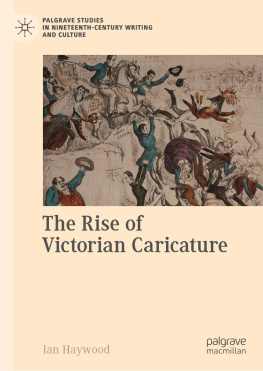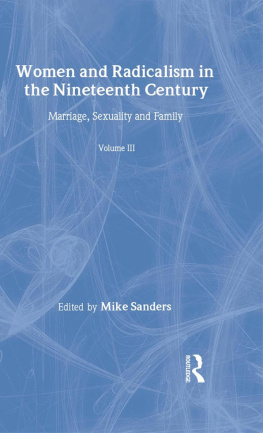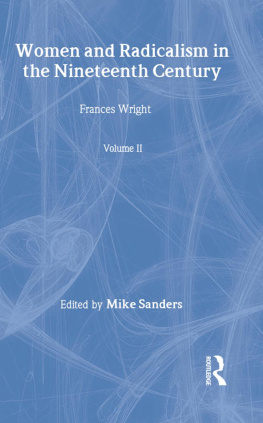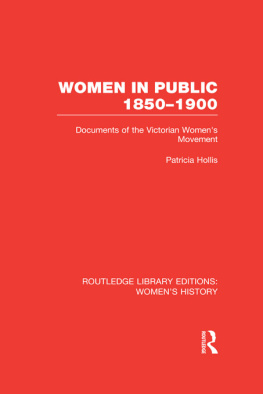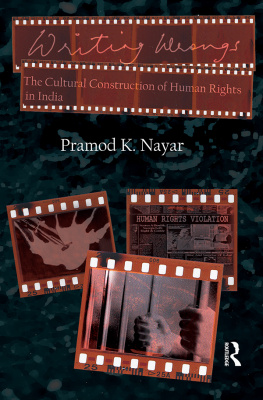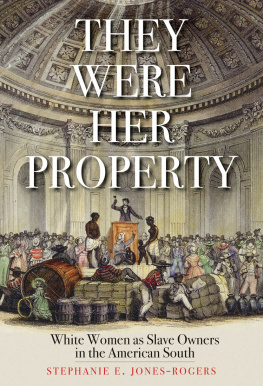Chartist Fiction
Volume 2
First published 2001 by Ashgate Publishing
Reissued 2018 by Routledge
2 Park Square, Milton Park, Abingdon, Oxon 0X14 4RN
711 Third Avenue, New York, NY 10017, USA
Routledge is an imprint of the Taylor & Francis Group, an informa business
Copyright Ian Haywood, 2001
The author has asserted his moral right under the Copyright, Designs and Patents Act, 1988, to be identified as the author of this work.
All rights reserved. No part of this book may be reprinted or reproduced or utilised in any form or by any electronic, mechanical, or other means, now known or hereafter invented, including photocopying and recording, or in any information storage or retrieval system, without permission in writing from the publishers.
Notice:
Product or corporate names may be trademarks or registered trademarks, and are used only for identification and explanation without intent to infringe.
Publisher's Note
The publisher has gone to great lengths to ensure the quality of this reprint but points out that some imperfections in the original copies may be apparent.
Disclaimer
The publisher has made every effort to trace copyright holders and welcomes correspondence from those they have been unable to contact.
A Library of Congress record exists under LC control number: 99042754
ISBN 13: 978-1-138-70236-3 (hbk)
ISBN 13: 978-1-315-20366-9 (ebk)
The Nineteenth Century
General Editors Preface
The aim of this series is to reflect, develop and extend the great burgeoning of interest in the nineteenth century that has been an inevitable feature of recent decades, as that former epoch has come more sharply into focus as a locus for our understanding not only of the past but of the contours of our modernity. Though it is dedicated principally to the publication of original monographs and symposia in literature, history, cultural analysis and associated fields, there will be a salient role for reprints of significant texts from, or about, the period. Our overarching policy is to address the spectrum of nineteenth-century studies without exception, achieving the widest scope in chronology, approach and range of concern. This, we believe, distinguishes our project from comparable ones, and means, for example, that in the relevant areas of scholarship we both recognize and cut innovatively across such parameters as those suggested by the designations Romantic and Victorian'. We welcome new ideas, while valuing tradition. It is hoped that the world which predates yet so forcibly predicts and engages our own will emerge in parts, as a whole, and in the lively currents of debate and change that are so manifest an aspect of its intellectual, artistic and social landscape.
Vincent Newey
Joanne Shattock
University of Leicester
I would like to thank all those colleagues who have encouraged me to complete this project. In particular, thanks are due to: Alec McAulay, Annie Janowitz, Rohan McWilliam, Stephen Roberts, Owen Ashton, Dorothy Thompson, Greg Claeys, Sally Ledger, Jo McDonough, Mark Turner, Michael Slater, Simon Edwards, Cathy Wells-Cole, Nicki Humble, Jenny Hartley, Zachary Leader, Anne Thompson, Stephanie Kuduk, Malcolm Chase, Martin Hewitt, Miles Taylor, Louis James, Brian Maidment, Mike Sanders, John Seed, Michelle Hawley, Janet Hayes, Helen Rogers, Tim Randall, Steve Devereux, Gustav Klaus, Stephen Knight, John Fordham, Simon Dentith and Gary Day. Special thanks to Jane Pringle and Caroline Cornish for their help in the preparation of camera-ready copy.
This book is dedicated to the Chartist movement and the persistence of its memory.
' the pen should be devoted to the many
A movement that has not the mighty organ of a press at its command is but half a movement.'
Look back and see him when, fourteen years ago, in 1845, he first entered the political movement of the working classes, fulli of youth and vigour, and with active perseverance and mental capacity of no common order;see him on the platform teaching the men with homy hands their political and social rights with clear and intelligent argument;see him at his desk, studying to improve the minds of the working classes, as editor of the Northern Star and the Labourer, behold him giving up his means of living to serve as an unpaid delegate at the Conference of 1848, and rejecting a large practice which (as Barrister of the Middle Temple) was offered him by an eminent solicitor;follow him to Kennington Common and Bonner's Fields, to brave the dangers of lying spies and Government persecution;follow him to Manchester, and see him at the People's Institute, and think you hear him in one of his energetic speeches calling on the people to stand boldly forward to obtain their rights;see him at midnight dragged from his bed, and brought before a Government tribunal, and sentenced for more than two years to a felon's cell for serving his country according to the best of his judgement;see him, after undergoing his cruel punishment of solitary confinement on the silent system, with all his prospects blasted, again enter the field of political agitation, sacrificing his opportunity of taking his position once more in aristocratic society, to serve the people's cause; see him the sole heir to his uncle, worth 2,000 a-year, refusing to give up his political advocacy that he may inherit his fortuneand behold him disinherited accordingly.
It is a necessity that some classes should be enemies. This is a melancholy truthbut it is a truth nevertheless. It is injurious to create a false impression for the sake of writing with ink made of rose-water.
A brief biographical summary
Ernest Charles Jones was bom in Berlin on 25 January 1819. His family was well connected. Jones's father was equerry to Ernest, Duke of Cumberland (the future King of Hanover), after whom Jones was named, and the wider family owned land in Germany and England. Jones was educated in Germany but in 1838 the family moved to England. At this point in his life Jones could not have been more socially and politically removed from the Chartist movement which had just been bom. He moved in the fashionable circles of upper-class London life, and was presented at Court in 1841, the year in which he married the daughter of a Cumberland landowner. He qualified as a barrister in 1844, but his abiding passion was of a more romantic and bohemian inclination. From an early age he had shown a talent for writing effusive verse, and he looked to poetry as his true vocation. His first novel, a chivalric fantasy called The Wood Spirit, appeared in 1841. His literary aspirations were well in advance of his achievements, however, and the mid-1840s found him in serious financial difficulties. His purchase of Kearsney Abbey in Kent had badly defaulted and led to bankruptcy. In order to alleviate his debts, Jones took employment as clerk to a railway company, but the crisis also seems to have radicalized his outlook on life. After the outbreak of the French revolution in February 1848, Jones was one of the Society's delegates sent to congratulate the provisional government.
Jones played a prominent role in the revival of Chartism in 1848, sitting in the National Convention and the National Assembly. Given the repressive policies of the Whig government towards this renewed mass agitation, and taking into account Jones's passionate oratorical style, it was perhaps inevitable that he would fall foul of the authorities. In June 1848 Jones and several other London Chartists were arrested and accused of seditious behaviour and inciting unlawful assembly.


